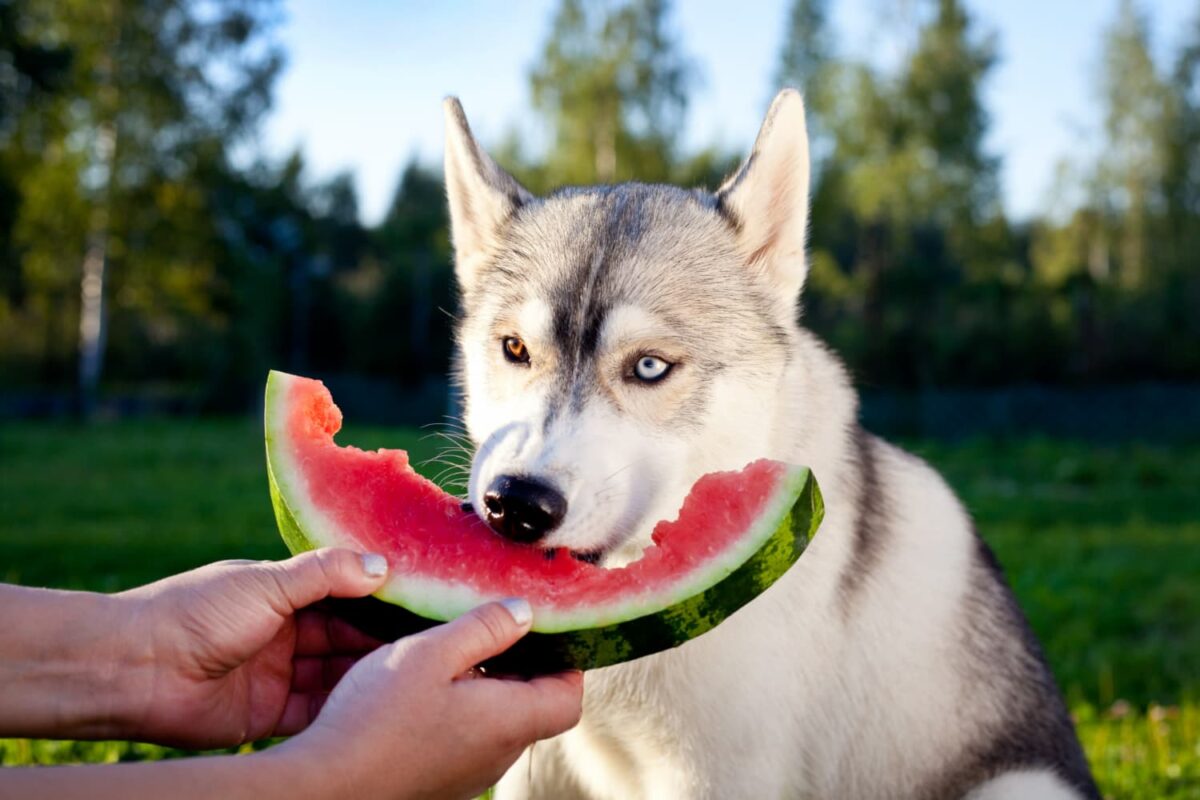Watermelon is a delicious and refreshing fruit that many of us enjoy, especially during the hot summer months. Its juicy flesh and sweet taste make it a popular treat for humans. But what about our furry friends? Can dogs enjoy watermelon too, specifically the rinds? In this essay, we will explore the topic of whether dogs can safely consume watermelon rinds. We will delve into the nutritional value of watermelon rinds, potential benefits and risks, as well as guidelines for feeding watermelon rinds to dogs. So, let’s find out if watermelon rinds are a safe and healthy treat for our canine companions.
Understanding Watermelon Rinds
Watermelon rinds are the tough outer skin or peel of the fruit. They are generally discarded by most people when consuming watermelon, as the focus is usually on the sweet and juicy flesh. However, it is important to note that watermelon rinds are edible and contain certain nutrients that may offer health benefits.
Nutritional Value of Watermelon Rinds
Watermelon rinds are low in calories and fat, making them a relatively healthy snack. They are a good source of dietary fiber, which aids in digestion and promotes a healthy gastrointestinal system. Watermelon rinds also contain vitamins and minerals such as vitamin C, vitamin B6, potassium, and magnesium.
Potential Benefits for Dogs

While watermelon rinds can be consumed by dogs, it is important to note that they should be given in moderation and with caution. Some potential benefits of feeding watermelon rinds to dogs include:
Hydration
Watermelon has a high water content, and this applies to the rinds as well. Feeding small pieces of watermelon rinds to dogs can help keep them hydrated, especially during hot weather or after physical activity.
Fiber
The dietary fiber found in watermelon rinds can aid in promoting healthy digestion and preventing constipation in dogs. It can also help with weight management by providing a feeling of fullness.
Dental Health
Chewing on watermelon rinds can act as a natural toothbrush for dogs, helping to remove plaque and tartar from their teeth. However, it is important to monitor your dog while they chew on the rinds to prevent choking or swallowing large chunks.
Risks and Precautions

While watermelon rinds can offer some health benefits to dogs, there are potential risks and precautions to consider:
Choking Hazard
Watermelon rinds can be tough and fibrous, making them difficult to chew and potentially causing a choking hazard for dogs. It is essential to cut the rinds into small, manageable pieces to minimize this risk.
Digestive Issues
Dogs have different digestive systems than humans, and some may have difficulty digesting watermelon rinds. Feeding large quantities or introducing them suddenly into their diet can lead to gastrointestinal upset, such as diarrhea or stomach discomfort. It is advisable to start with small portions and observe how your dog reacts before increasing the amount.
Pesticide Exposure
Like any fruit or vegetable, watermelons can be treated with pesticides. It is important to choose organic watermelons whenever possible to minimize potential pesticide exposure for your dog.
Guidelines for Feeding Watermelon Rinds to Dogs
If you decide to offer watermelon rinds to your dog, it is crucial to follow these guidelines:
Remove the Seeds
Watermelon seeds can pose a choking hazard and should be removed before giving the rinds to your dog. Seeds can also cause intestinal blockage if ingested in large quantities.
Cut into Small Pieces
Always cut the watermelon rinds into small, bite-sized pieces to reduce the risk of choking and facilitate digestion.
Monitor Consumption
Observe your dog while they eat watermelon rinds and ensure they chew them thoroughly before swallowing.
Moderation is Key
Watermelon rinds should be given as an occasional treat and not as a staple food in your dog’s diet. Too much of any food can upset their digestive system and lead to health issues.
Conclusion
In conclusion, dogs can safely eat watermelon rinds in moderation, but precautions should be taken to ensure their safety and well-being. The rinds can provide hydration, fiber, and some dental benefits for dogs. However, it is essential to cut them into small pieces, remove the seeds, and monitor your dog while they consume them. If you have any concerns or your dog experiences any adverse reactions, it is best to consult with your veterinarian. Remember, every dog is different, and what may be suitable for one dog may not be suitable for another.













